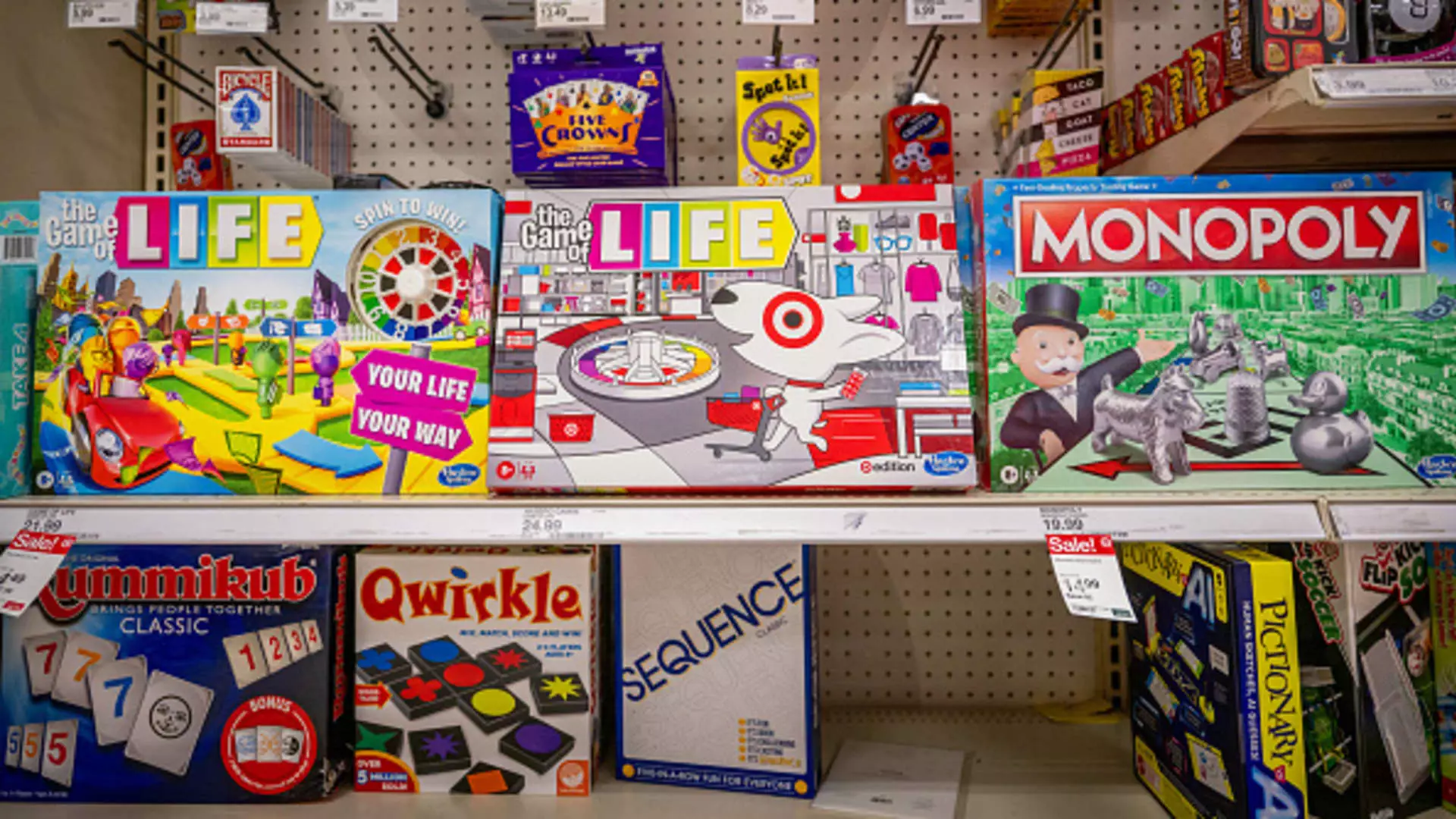The ongoing trade war ignited by President Donald Trump’s administration has cast a shadow over American companies that depend on global supply chains for their survival. Among them is Hasbro, a titan in the toy industry. The company’s revelation that a staggering 145% tariff on imports from China could erode its profits by up to $300 million is a clarion call for change. While the toy manufacturer has recently reported earnings that exceed expectations, investors’ concerns remain firmly anchored in the turbulent waters of trade tariffs and their destabilizing effects on the market.
Gina Goetter, Hasbro’s chief financial officer, laid bare the grim realities facing the company, presenting various scenarios that demonstrate the precariousness of their financial forecasting. Uncertainty has become the new normal, making it nearly impossible for businesses to chart a clear course. Her admission regarding the potential gross impact of tariffs—ranging from $100 million to $300 million—sends a chilling message: businesses urgently need a stable trade environment for future planning.
The Price of Resilience
Chris Cocks, Hasbro’s CEO, attempted to project optimism on an earnings call, claiming that the company is “well positioned” despite the uncertainty. However, beneath the surface of corporate jargon lies the troubling reality that no business is truly insulated from the damaging consequences of prolonged tariffs. Cocks candidly pointed out that these tariffs ultimately lead to higher consumer prices, a fate that both shareholders and the consumers they serve would prefer to avoid.
The situation raises an unsettling question: at what point does corporate survival overshadow consumer welfare? As Hasbro plots a course to navigate its way through the looming storm, the specter of job losses hangs heavily over the company’s head. The “structural costs” associated with tariffs might seem abstract, but they translate into very real consequences for employees, families, and the communities that depend on the stability of this business.
Shifting Supply Chains: A Costly Gamble
In a strategic pivot, Hasbro is exploring alternatives for its supply chain, playing a complex game of chess against geopolitical forces. While relocating parts of their production from China to Turkey may seem like a tactical win on paper, the hidden costs associated with such a move could outweigh the potential savings. The reality that domestically produced board games are far more expensive to manufacture than those made overseas is not just a minor detail—it’s a stark reminder of how interwoven trade and economics have become.
Cocks’s assertion that China will continue to remain a crucial manufacturing hub underscores a fundamental tension in Hasbro’s operational strategy. Years of investment in specialized capabilities within China cannot simply be erased overnight. Though the company aims to diversify its production to mitigate risk, the path is fraught with challenges, particularly for products with intricate components like electronics or high-end decor that are difficult to replicate elsewhere.
Cost-Cutting Measures: A Fragile Future
Faced with tariff pressures, Hasbro’s acceleration of a $1 billion cost savings plan indicates a desperate bid to maintain profitability amidst uncertainty. But as Cocks warns, price hikes are not a matter of if but rather when. This poses the uncomfortable question of how much longer customers, particularly families who may already be feeling inflationary pressures elsewhere, will bear the burden of increased toy prices. This dilemma showcases the clash between corporate profit and consumer well-being—a conundrum that few companies navigate successfully.
The promise of a “more predictable and favorable U.S. trade policy” is a notion that feels increasingly remote. In today’s polarized environment, such hopes seem contingent on an unpredictable political landscape. The inability to guarantee even the basic stability of trade relations is in itself a crisis, leading businesses like Hasbro to scramble defensively, all while trying to maintain an ever-thinning veil of optimism.
While the company speaks in terms of playing both offense and defense, the implications of trade war tariffs extend beyond earnings calls and investor relations; they echo in the lives of the many who rely on Hasbro for not just toys, but for joy in experiences shared with loved ones. The future remains uncertain, and the high stakes of this economic gamble may well reshape the very fabric of what we cherish about childhood.


Leave a Reply